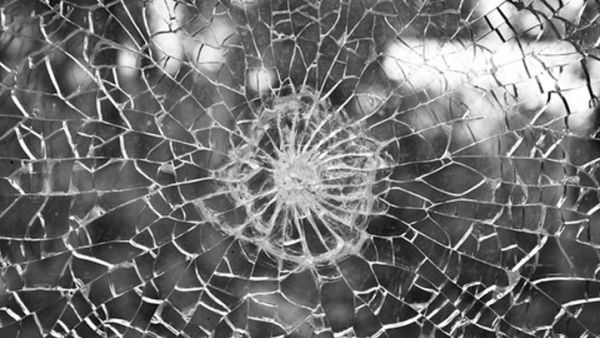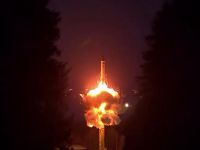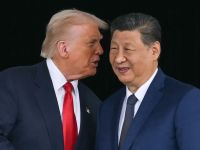While most civilian business sectors thrive in peaceful political and economic conditions, the armored car industry burgeons in political crises, civil wars and in an environment of assassinations.
The turbulent Middle Eastern region has seen an increase this year in the sales of armored vehicles for an affluent clientele wishing to cocoon themselves in 6 centimeter bulletproof glass, hardened ballistic steel and Kevlar.
The U.S.-based Texas Armoring Corporation has seen sales in the region grow steadily over the past 2 to 3 years, with a continual 15 percent increase every year.
“Once you start armoring cars for a family, everyone in that family is going to start riding in an armored vehicle within the next couple of years, that’s the trend we’ve seen,” company Vice President Jason Forston told Al Arabiya English.
The company’s sales in the Arab region are mainly to executives and business owners, many of whom fear kidnapping and being targeted for their wealth.
“If you have that kind of money, it’s kind of silly not to spend a little bit of it on the protection of your family and your life. If your net worth is $10 million, what’s 200,000 dollars on an armored car?” said Forston.
Armored car companies report growing sales to Afghanistan, Somalia, Libya, Iraq, Jordan, Lebanon, Yemen, Pakistan and Syria.
“The total market in the region is about 3,000 cars a year,” said Patrick Aouad, CEO of Lebanon-based Yaka Group, which sells armored cars across the Middle East and Africa.
Sales to private individuals across the Middle East make up 10 percent of the Yaka Group’s business, which has sold approximately 300 cars this year.
“In Syria, half to 70 percent of the market is for private individuals. Most of them [private individuals in Syria] are Lebanese.”
Unpredictable
Despite the steady growth of the industry in recent years, the armored car market is somewhat unpredictable.
After former Lebanese Prime Minister Rafic Hariri was assassinated in 2005 when an explosive-filled van detonated next to his motorcade, sales shot up “because everybody was afraid,” said Aouad.
The most favorable market conditions in a country are immediately after a war. Sales in post-conflict countries such as Libya, Iraq, and Afghanistan are reported to be some of the strongest in the region.
“If there’s a strike on Syria, and Syria becomes like Iraq, you have to count around 1,000 to 1,500 [sales of armored cars] in Syria,” said Aouad.
Bulletproof
Armored cars are usually assembled to specified levels of protection, depending on the client’s needs.
The lowest level of bulletproofing reinforces vehicles from pistol and shotgun fire. This type of armoring is popular in Central and South America where shootings and hold-ups are common.
According to Aouad, 80 percent of the cars sold in the Middle East are armored to a higher specification, which protect against high-powered rifles such as the AK-47 and M16.
“You can put a 12 kilo bomb next to these cars and you’ll still be living,” said Aouad, adding that the car, however, will be “completely destroyed.”
Question of ethics
While the sale and export of armored cars is regulated by both governments and the industry itself. Two representatives from armored car companies told Al Arabiya English that one company based in the Gulf had sold armored cars to regime figures in former Libyan leader Muammar Qaddafi’s government.
“The international rules are against selling [armored cars] to those that you don’t know who they are, whether they’re banned, or if it’s a terrorist organization. [We] do the work to know,” said Aouad.
The U.S. government closely monitors armored car exports to the region.
“It’s regulated in such a way that it’s hard to sell to the wrong person overseas,” said Forston.
“If we get any red flags at all that the vehicle could be used for nefarious purposes, or fall into the hands of the wrong person, we won’t sell to him. We don’t sell cars to bad guys – that’s our general rule,” he added.








